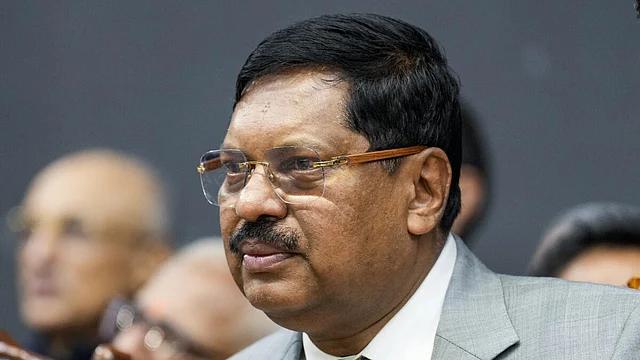Clarification After Dismissal of Plea Sparks Discussion
Chief Justice of India BR Gavai has responded to the growing debate around comments made during the recent hearing of a plea involving a centuries-old idol in Khajuraho. His straightforward statement — “I respect all religions” — is what’s making headlines just days after he led a bench that dismissed a request to reconstruct and reinstall a Lord Vishnu idol in the historic temple complex.
What Prompted This Statement?
Let’s rewind. A petition was recently brought before the Supreme Court, seeking approval for the reinstallation of a broken and removed idol of Lord Vishnu at its original spot in Khajuraho, Madhya Pradesh. The plea argued this would restore cultural and religious sanctity at one of India’s most iconic UNESCO World Heritage Sites.
But the bench, headed by CJI Gavai, dismissed the plea. The legal reasoning was based on established conservation practices and heritage regulations. Some comments made in court during the dismissal, however, sparked controversy and were interpreted by some as dismissive of religious sentiments attached to the idol’s reinstallation.
“I Respect All Religions”: A Clear Message
Following the outcry, CJI Gavai made a prompt clarification intending to calm the waters. Speaking on the matter, he said,
“There was no disrespect meant. I have utmost regard for all faiths, beliefs, and spiritual sentiments. Every religion deserves equal respect in the eyes of the law.”
You might have seen these kinds of headlines before — legal decisions that stir emotional debates. But when such a senior judicial figure makes a public statement of respect, it often acts as a cooling touch in heated conversations. Many in the legal community and broader public welcomed this gesture of clarity.
Timeline of Events
- Early April 2024: Petition filed requesting the reinstallation of a historic Lord Vishnu idol in Khajuraho.
- Late April 2024: Supreme Court bench headed by CJI Gavai hears the case.
- May 2024: Plea dismissed citing preservation of heritage structures under ASI guidelines.
- 2 May 2024: Public and media discussion over remarks during the dismissal starts to grow online.
- 3 May 2024: CJI BR Gavai issues statement saying, “I respect all religions.”
Why This Caught Public Attention
In India, matters concerning religion can understandably get sensitive. Temples like Khajuraho aren’t just historical monuments. To many, they represent cultural identity and spiritual connection. So, even though the court decision followed legal precedent, some saw the denial as disregarding a sacred tradition.
It didn’t help that bits of courtroom remarks began floating on social media, often out of context. That’s where the misinterpretation starts. And this is where the CJI’s clarification became necessary — to separate legal reasoning from perceived religious judgment.
“I think what stood out to people wasn’t the ruling itself, but the way it was possibly interpreted as being dismissive,” said a senior advocate close to the case.
Official Position from the Archaeological Survey of India (ASI)
The ASI, which is responsible for protecting India’s historic sites, had earlier issued its own assessment about the Khajuraho case. According to their reports, reconstruction or reinstallation wasn’t feasible due to risks it posed to the structural integrity of the site.
The agency advised that any change to the monument’s current structure might violate existing heritage protection rules, including those backed by international agreements with UNESCO.
Community Response
The response was mixed. Some religious leaders expressed disappointment over the dismissal of the idol plea but appreciated the CJI’s clarification.
“This isn’t about opposing the court,” said a local priest in Khajuraho. “It’s about finding out how spiritual aspects can be balanced with heritage and law. At least the Chief Justice acknowledged the emotional weight of the issue.”
Others responded on social media, pointing out the need for judiciary figures to tread carefully when spirituality and legality interact.
Looking Ahead: The Bigger Picture
This discussion touches something broader. It’s about how judicial decisions are presented, perceived, and emotionally received by the public. Especially when the subject is religion, even more care is needed in communication.
Justice and faith don’t always walk the same path, but both co-exist in society’s consciousness. Cases like these show that the line between legal tradition and religious sentiment isn’t always clear — and maybe never will be. Still, statements like “I respect all religions” work as a reassuring reminder that the rule of law tries to stay balanced.
Key Takeaways
- The Lord Vishnu idol plea was dismissed due to heritage site rules — not religious bias.
- CJI BR Gavai clarified his intention with the message: “I respect all religions”.
- The ASI warned against altering the structure for fear of damaging a protected site.
- Community reactions included both hurt and appreciation for the clarification.
- This moment highlights the delicate balance between legal decisions and public faith.
Whether you agree with the ruling or not, one thing is clear — in a country as diverse as India, every word from the bench carries deep weight. And sometimes, a few honest words can help bridge worlds.

